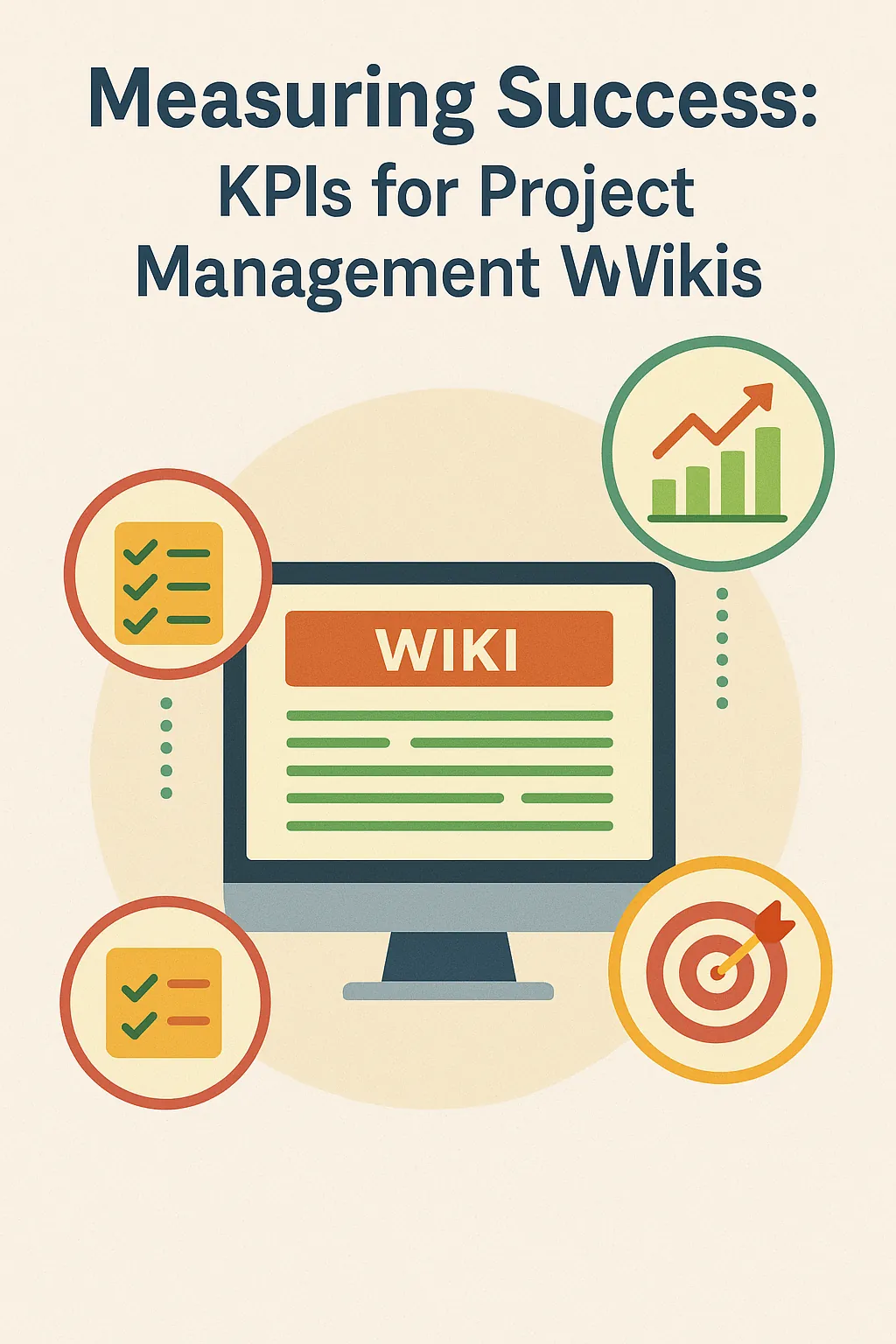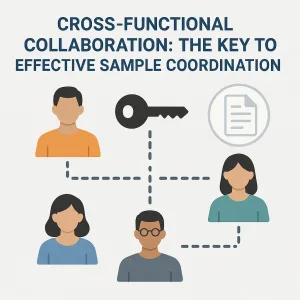Introduction to Project Management Wikis
Effective communication and collaboration are paramount to the success of any initiative. One innovative tool that has gained traction in recent years is the project management wiki.
Definition of Project Management Wikis
A project management wiki is a collaborative platform that allows project teams to create, edit, and share information in a centralized location. Unlike traditional documentation methods, wikis enable real-time updates and contributions from multiple users, fostering a dynamic environment for knowledge sharing. This flexibility makes wikis particularly useful for managing project documentation, tracking progress, and maintaining a repository of best practices and lessons learned.
Importance of Knowledge Sharing in Projects
Knowledge sharing is a critical component of successful project execution. It ensures that all team members have access to the same information, reducing the risk of miscommunication and enhancing decision-making processes. By utilizing a project management wiki, teams can document their insights, strategies, and outcomes, creating a valuable resource that can be referenced throughout the project lifecycle. This collective intelligence not only aids current projects but also serves as a foundation for future initiatives, promoting continuous improvement and innovation.
Overview of How Wikis Facilitate Collaboration and Information Management
Wikis serve as a powerful tool for collaboration, allowing team members to contribute their expertise and insights in a structured manner. Key features of project management wikis include:
- Real-Time Collaboration: Team members can edit and update content simultaneously, ensuring that the most current information is always available.
- Version Control: Wikis maintain a history of changes, allowing users to track edits and revert to previous versions if necessary. This feature is crucial for maintaining the integrity of project documentation.
- Searchability: With a well-organized wiki, users can quickly find relevant information, reducing the time spent searching for documents and enhancing overall efficiency.
- Accessibility: Wikis can be accessed from various devices, making it easy for team members to contribute and retrieve information regardless of their location.
Understanding Key Performance Indicators (KPIs)
Key Performance Indicators (KPIs) serve as essential tools for evaluating the effectiveness and success of various initiatives, including project management wikis. These metrics provide project managers and data analysts with quantifiable measures that can guide decision-making and enhance project outcomes.
Definition of KPIs in the Context of Project Management
Key Performance Indicators (KPIs) are specific, measurable values that demonstrate how effectively a project is achieving its key objectives. In the context of project management, KPIs can encompass a wide range of metrics, from budget adherence and timeline compliance to stakeholder satisfaction and resource utilization. By establishing clear KPIs, project managers can track progress, identify areas for improvement, and ensure that the project aligns with its strategic goals.
The Significance of KPIs in Assessing Project Performance
KPIs play a crucial role in assessing project performance for several reasons:
- Objective Measurement: KPIs provide an objective basis for evaluating project success, moving beyond subjective assessments to data-driven insights. This objectivity helps in making informed decisions and justifying actions taken during the project lifecycle.
- Performance Tracking: By regularly monitoring KPIs, project managers can track performance over time, allowing for timely adjustments to strategies and tactics. This proactive approach can mitigate risks and enhance the likelihood of project success.
- Stakeholder Communication: KPIs serve as a common language for communicating project status to stakeholders. By presenting clear and concise metrics, project managers can effectively convey progress and challenges, fostering transparency and trust among team members and stakeholders.
Characteristics of Effective KPIs (SMART Criteria)
To be truly effective, KPIs should adhere to the SMART criteria, which stands for Specific, Measurable, Achievable, Relevant, and Time-bound:
- Specific: KPIs should be clear and specific, detailing exactly what is being measured. For example, instead of a vague goal like “improve communication,” a specific KPI might be “increase the number of wiki page edits by team members by 20% within the next quarter.”
- Measurable: Effective KPIs must be quantifiable, allowing for objective assessment. This means that the data needed to evaluate the KPI should be readily available and easy to collect.
- Achievable: While KPIs should be ambitious, they must also be realistic and attainable. Setting achievable targets helps maintain team motivation and focus.
- Relevant: KPIs should align with the overall goals of the project and the organization. They must be pertinent to the specific context of the project management wiki, ensuring that they provide valuable insights.
- Time-bound: Each KPI should have a defined timeframe for achievement. This creates a sense of urgency and helps in planning and prioritizing tasks effectively.
Identifying Relevant KPIs for Project Management Wikis
When evaluating the effectiveness of project management wikis, it is essential to establish key performance indicators (KPIs) that provide insights into user engagement, content quality, and overall satisfaction. Here are specific KPIs tailored for assessing project management wikis:
1. User Engagement Metrics
- Page Views: This metric tracks the total number of times pages within the wiki are viewed. High page views indicate that users are actively seeking information, which is a positive sign of engagement.
- Unique Visitors: Measuring the number of distinct users accessing the wiki helps gauge the reach and popularity of the content. A growing number of unique visitors suggests that the wiki is becoming a valuable resource for project managers and team members.
2. Content Contributions
- Number of Edits: This KPI reflects how often content is updated or modified. Frequent edits can indicate that users are actively collaborating and improving the information available, which is crucial for maintaining the wiki’s relevance.
- New Pages Created: Tracking the number of new pages added to the wiki can help assess the growth of the knowledge base. A steady increase in new pages suggests that users are contributing valuable insights and expanding the scope of the wiki.
3. User Satisfaction and Feedback Metrics
- User Surveys: Conducting regular surveys can provide direct feedback from users regarding their experience with the wiki. Questions can focus on usability, content quality, and overall satisfaction, helping to identify areas for improvement.
- Net Promoter Score (NPS): This metric measures the likelihood of users recommending the wiki to others. A high NPS indicates that users find the wiki beneficial and are willing to endorse it within their networks.
4. Content Accuracy and Relevance Measures
- Content Review Frequency: Establishing a schedule for regular content reviews ensures that information remains accurate and up-to-date. Tracking how often content is reviewed can help maintain high standards of quality.
- Error Reporting: Monitoring the number of reported errors or inaccuracies can provide insights into the reliability of the content. A decrease in reported issues over time may indicate improved content quality.
5. Time Spent on the Wiki and Frequency of Access
- Average Time on Page: This metric measures how long users spend on individual pages. Longer time spent may suggest that users are engaged with the content, while shorter times could indicate that the information is not meeting their needs.
- Frequency of Access: Tracking how often users return to the wiki can help assess its value as a resource. Regular access by the same users indicates that the wiki is a trusted tool for project management.
By focusing on these KPIs, project managers and data analysts can effectively evaluate the performance of project management wikis, ensuring they serve as valuable resources for teams and contribute to successful project outcomes.
Measuring the Impact of KPIs on Project Success
Wikis serve as collaborative platforms that can significantly enhance communication, knowledge sharing, and overall project efficiency. To effectively evaluate the success of a project management wiki, it is essential to define and measure key performance indicators (KPIs). These KPIs not only provide insights into the wiki’s effectiveness but also correlate directly with project outcomes. Here are some critical points to consider:
- Linking User Engagement to Project Efficiency and Communication: High levels of user engagement with the wiki can indicate effective communication and collaboration among team members. KPIs such as the number of active users, frequency of contributions, and page views can help project managers assess how well the wiki facilitates information sharing. Increased engagement often leads to quicker decision-making and problem-solving, ultimately enhancing project efficiency [1].
- The Role of Content Contributions in Enhancing Team Knowledge and Skills: The quality and quantity of content contributions to the wiki are vital KPIs. By tracking metrics such as the number of articles created, edits made, and user-generated content, project managers can evaluate how well the wiki serves as a knowledge repository. A rich repository of information not only improves team skills but also fosters a culture of continuous learning, which is crucial for project success [2].
- Analyzing User Feedback to Improve Wiki Content and Usability: Gathering and analyzing user feedback is essential for refining the wiki’s content and usability. KPIs such as user satisfaction ratings, feedback submission rates, and the number of suggestions implemented can provide valuable insights. By responding to user feedback, project managers can enhance the wiki’s relevance and usability, ensuring it meets the evolving needs of the team [3].
- Assessing How Accurate and Relevant Content Leads to Informed Decision-Making: The accuracy and relevance of the content within the wiki are critical for informed decision-making. KPIs that measure content accuracy, such as the frequency of content updates and the number of citations or references used, can help project managers ensure that the information is reliable. When team members have access to accurate and relevant content, they are better equipped to make decisions that positively impact project outcomes [4].
Tools and Techniques for KPI Measurement
Measuring the effectiveness of a project management wiki is crucial for ensuring that it meets the needs of its users and contributes to the overall success of projects. To achieve this, project managers and data analysts can utilize a variety of tools and techniques to track key performance indicators (KPIs). Here’s an overview of practical methods for measuring the KPIs established for your wiki.
1. Overview of Analytics Tools
- Google Analytics: This powerful tool can be integrated with your wiki to track user engagement metrics such as page views, session duration, and bounce rates. By analyzing this data, project managers can gain insights into which content is most valuable to users and identify areas for improvement.
- Wiki Analytics Plugins: Many wiki platforms offer built-in analytics or plugins that provide detailed statistics on user activity. These tools can track metrics like the number of edits, page views, and unique visitors, allowing for a more tailored analysis of how the wiki is being used.
2. Surveys and Feedback Tools
- User Satisfaction Surveys: Implementing surveys can help gather qualitative data on user satisfaction. Tools like SurveyMonkey or Google Forms can be used to create surveys that assess user experience, content relevance, and overall satisfaction with the wiki. This feedback is invaluable for understanding user needs and making necessary adjustments.
- Feedback Widgets: Adding feedback widgets directly on the wiki pages allows users to provide immediate input on specific content. This real-time feedback can help identify issues quickly and enhance user engagement.
3. Methods for Tracking Content Contributions and User Activity
- Contribution Tracking: Establishing a system to monitor contributions from users can provide insights into collaboration levels. This can be done through version control features that track edits and contributions, helping to identify active users and content creators.
- User Activity Logs: Utilizing user activity logs can help project managers understand how often users are accessing the wiki, what content they are engaging with, and how they navigate through the site. This data can inform decisions about content organization and accessibility.
4. Regular Reporting and Review Processes
- KPI Dashboards: Creating a dashboard that consolidates all relevant KPIs can facilitate regular monitoring and reporting. Tools like Tableau or Power BI can visualize data trends over time, making it easier to identify patterns and areas needing attention.
- Scheduled Reviews: Establishing a routine for reviewing KPIs—such as monthly or quarterly meetings—ensures that the team remains focused on the wiki’s effectiveness. During these reviews, project managers can discuss findings, assess progress towards goals, and make data-driven decisions for future improvements.
By employing these tools and techniques, project managers and data analysts can effectively measure the success of their project management wikis. This systematic approach not only enhances user engagement but also ensures that the wiki remains a valuable resource for project teams.
Challenges in Measuring Wiki Effectiveness
Measuring the effectiveness of project management wikis can be a complex endeavor for project managers and data analysts. While wikis are designed to enhance collaboration and knowledge sharing, several challenges can hinder the accurate assessment of their performance. Below are some common obstacles faced in this area, along with potential solutions and best practices.
1. Difficulty in Defining Relevant KPIs
One of the primary challenges in measuring wiki effectiveness is the difficulty in defining relevant Key Performance Indicators (KPIs). Project managers often struggle to identify which metrics truly reflect the wiki’s impact on project outcomes. Common KPIs might include:
- User Engagement: Tracking the number of active users and contributions can provide insights into how frequently the wiki is utilized.
- Content Quality: Evaluating the relevance and accuracy of the information shared can help assess the wiki’s value.
- Searchability: Measuring how easily users can find information can indicate the effectiveness of the wiki’s organization.
Solution: To overcome this challenge, project managers should involve team members in the KPI selection process. This collaborative approach ensures that the chosen metrics align with the team’s goals and the wiki’s intended purpose.
2. Challenges in Gathering Accurate Data
Another significant hurdle is the challenge of gathering accurate data. Many wikis do not have built-in analytics tools, making it difficult to track user interactions and content updates effectively. This lack of data can lead to incomplete assessments of the wiki’s performance.
Solution: Implementing third-party analytics tools or utilizing built-in features of more advanced wiki platforms can help gather comprehensive data. Regular audits of wiki content can also ensure that the information remains current and relevant, providing a clearer picture of its usage.
3. Resistance to Change in Team Culture Regarding Wiki Usage
Resistance to adopting a wiki as a primary knowledge-sharing tool can be a major barrier. Team members may be accustomed to traditional methods of communication and may view the wiki as an additional burden rather than a beneficial resource. This cultural resistance can lead to underutilization of the wiki.
Solution: To foster a culture that embraces wiki usage, project managers should provide training sessions that highlight the benefits of the wiki. Encouraging team members to contribute and share their expertise can also promote a sense of ownership and investment in the platform.
4. Solutions and Best Practices to Overcome These Challenges
To effectively measure the success of project management wikis, project managers can adopt several best practices:
- Establish Clear Objectives: Define the purpose of the wiki and align KPIs with these objectives to ensure that measurements are relevant and actionable.
- Regularly Review and Adjust KPIs: As projects evolve, so too should the KPIs. Regular reviews can help ensure that the metrics remain aligned with the team’s goals.
- Encourage Continuous Feedback: Create a feedback loop where team members can share their experiences and suggestions regarding the wiki. This input can help refine the platform and its usage.
- Promote Success Stories: Highlighting instances where the wiki has positively impacted project outcomes can motivate team members to engage more actively with the tool.
By addressing these challenges and implementing effective solutions, project managers can better measure the effectiveness of their project management wikis, ultimately leading to improved collaboration and project success.
Conclusion and Future Directions
The effectiveness of wikis as collaborative tools hinges significantly on the establishment and measurement of key performance indicators (KPIs). These metrics serve as vital benchmarks that allow project managers and data analysts to assess how well a wiki is functioning in terms of user engagement, content quality, and overall contribution to project goals.
- Recap of the Importance of KPIs for Wiki Effectiveness: KPIs provide a structured approach to evaluate the performance of project management wikis. By focusing on metrics such as user activity levels, content updates, and feedback scores, project managers can gain insights into how effectively the wiki supports team collaboration and knowledge sharing. This evaluation is crucial for identifying areas for improvement and ensuring that the wiki remains a valuable resource throughout the project lifecycle.
- Encouragement to Continually Adapt and Refine KPIs: As project dynamics evolve, so too should the KPIs used to measure wiki effectiveness. It is essential for project managers to regularly review and adjust these indicators to reflect changing project needs, team structures, and technological advancements. This iterative process not only enhances the relevance of the KPIs but also fosters a culture of continuous improvement within the project team.
- Emerging Trends in Project Management Wikis and Technology: The landscape of project management wikis is rapidly changing, influenced by advancements in technology and collaborative practices. Trends such as the integration of artificial intelligence for content curation, enhanced analytics for user engagement tracking, and the use of mobile-friendly platforms are reshaping how wikis are utilized. These developments will likely lead to new KPI frameworks that incorporate real-time data analysis and user behavior insights, enabling project managers to make more informed decisions and drive project success.
In summary, the effective measurement of project management wikis through well-defined KPIs is essential for maximizing their potential. By embracing a flexible approach to KPI development and staying attuned to emerging trends, project managers can ensure that their wikis not only meet current needs but also adapt to future challenges in the ever-evolving project management landscape.
Find out more about Shaun Stoltz https://www.shaunstoltz.com/about/.
This post was written by an AI and reviewed/edited by a human.



